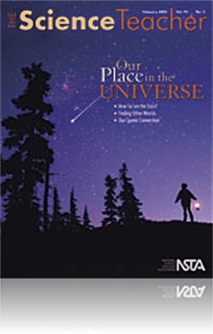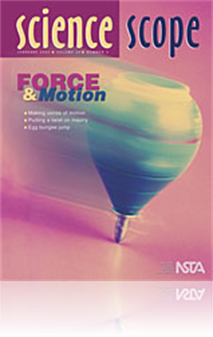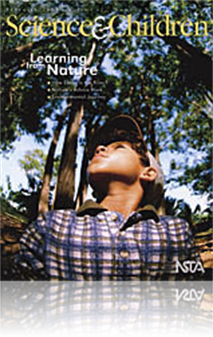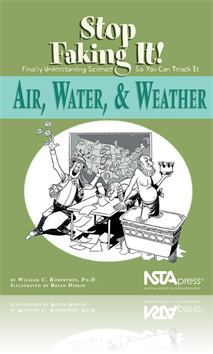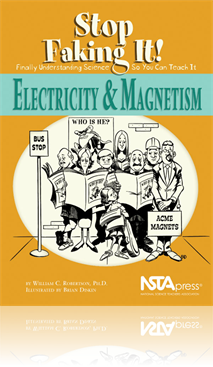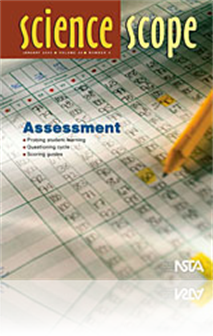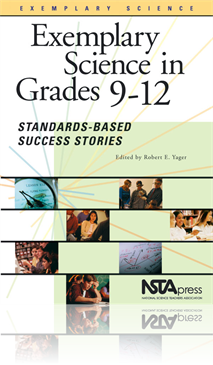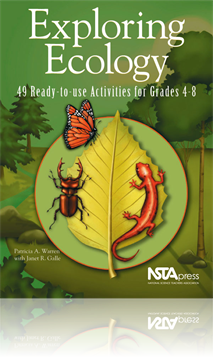All Resources
Journal Article
Trekking Across the Science Boundaries
Stories are powerful learning tools in science education. The story of "our place in the universe" is the grand science narrative of the origin and evolution of galaxies, stars, planets, and life. This article describes the use of cosmic evolution as...
Journal Article
This activity is designed to introduce motion concepts to students through active, hands-on investigation, and to help activate their prior knowledge about motion. It can be developed into a culminating assessment for a unit on force and motion that ...
Journal Article
This article discusses how the evolution of stars from birth in giant clouds of gas and dust to death in catastrophic explosions sets the stage for planets and life to form. This article provides information about the Chandra X-Ray Center (CXC) educa...
Journal Article
Editor's Corner: Exploring Our Place in the Universe
Gazing upward, the night sky has always been a source of awe and wonder. It is difficult not to ponder the truly profound questions of existence. How did everything begin? How big is the universe? What is our place in the universe? The Field Editor ...
Journal Article
Delve into microbiology with the assistance of micro*scope--a free, online resource with an image-rich database of eukaryotic and prokaryotic microbes. The resource can be easily incorporated into the science curriculum because microbial communities ...
Journal Article
Idea Bank: History of Science Poster Challenge
To learn more about the history of science, secondary level physics students chose a physicist to nominate to the “Physicist Hall of Fame.” The project ultimately involved two student products: a persuasive paper describing the physicist’s work...
Journal Article
Career of the Month: An Interview with NASA Astronaut Ellen Ochoa
If there's no career exciting enough for you here on Earth, then shoot for the stars... literally! This issue's Career of the Month column profiles NASA astronaut Ellen Ochoa, the first Hispanic woman to fly on a mission to space. Your students will ...
Journal Article
Methods and Strategies: The Common Ground -- A rationale for integrating science and reading
Building on the common ground between subjects through integration helps teachers address learning goals in both subjects without compromising either. This article addresses ways to integrate science with language arts objectives....
Journal Article
Fourth-grade students’ inquiry skills are tested when a container of mealworms arrives and they are given the opporunity to explore an unfamiliar organism. Students complete a series of mealworm activities, from observing and drawing the mealworms,...
Journal Article
Science Sampler: Weathering database technology
Collecting weather data is a traditional part of a meteorology unit at the middle level, but making connections between the data and weather conditions can be a challenge for students. One way to help students make these connections clearer is to ent...
Journal Article
Students learn about space exploration through an online, cross-curricular program. STAR students are encouraged to apply their knowledge in creative ways—such as through stories and screenplays—as they approach an authentic problem involving spa...
Journal Article
Scope on the Skies: February 2005
Reach for the moon during the month of February! Our Moon appears in conjunction with planets and stars along the ecliptic, as it does each month. From our perspective, the object looks close--February is no exception. A conjunction occurs when, in ...
Journal Article
After months of exploring various ecosystems, a third grade teacher incorporates "Nature's Advice Book", a writing tool created to assess what her students had learned and to gain insight into their ideas about nature in a creative way. This writing...
Journal Article
Spill Sleuths: An Interdisciplinary Environmental Health Investigation
An environmental health mystery can help teach students many aspects of environmental health and crisis management in the context of their own community. Students use skills from several disciplines to pinpoint, assess, and address the environmental ...
Journal Article
Science Sampler: Strategies to increase active discussion and thinking for all students
How many times have you expected to hold an exciting class discussion after a laboratory activity or demonstration only to have just one or two students speak? To increase student participation in class discussions, try using the three instructional ...
Journal Article
Teaching Through Trade Books: Talking Trees
Students love outdoor activities and will love them even more when they build confidence in their tree identification and measurement skills. The activities in this month's Teaching Through Trade Books column help students learn to identify the major...
Journal Article
Science 101: How do insects help the environment?
Although insects sometimes have a bad reputation, most are beneficial to humans and the environment, not detrimental. Without insects, the environment could not function as it does, yet few of us have considered how these numerous and varied organism...
Journal Article
If only Humpty-Dumpty had known about the egg bungee jump... This engaging activity helps students experience science in a constructivist, inquiry-oriented manner and has the added benefit of providing a concrete context within which students can ex...
Book Chapter
If you understood the first two chapters, you now know how to describe motion (using velocity and accelerations) and you know what causes changes in motion (net forces do it). Remember that net force refers to what you get when you consider the tota...
Book Chapter
The contents of this chapter deal with air pressure and water pressure and what causes those things to increase and decrease. In addition, the real-world results of those increases and decreases in air and water pressure will be addressed....
Book Chapter
This chapter delves deeper into air pressure, or to be more correct, the pressure exerted by any gas. The most important part of this chapter is a scientific model for how gases behave, which will be used to explain previous activities pertaining to ...
Book Chapter
Balloons and Other Things That Sometimes Float
Hot air balloons float--sometimes. Regular old balloons that you get at a party float--sometimes. Boats float--sometimes. What makes them float and what makes them sink? How can a boat made of steel float but a solid chunk of steel sink to the bottom...
Book Chapter
Before moving on to weather patterns, there are a few concepts about air and water that haven't been covered thus far. This chapter ties together these loose ends and prepares readers for a better understanding of the various processes that cause wea...
Book Chapter
The concepts covered so far that pertain to the Earth's weather will finally be applied in this chapter. A number of basic mechanisms that govern small-scale things such as cloud formation, rain, fog, dew point, and humidity, will be addressed. ...
Book Chapter
In the previous chapter, we dealt with how the properties of air and water affected small-scale weather such as the formation of clouds, the formation of fog, and how comfortable you feel at different times of the year. In this chapter, we're going t...
Book Chapter
So far, small-scale and large-scale weather patterns have been dealt with. What seems to interest people most, though, are the "special" events related to weather. Those special events include thunderstorms, tornadoes, hurricanes, floods, and drought...
Book Chapter
Connecting Electricity and Magnetism
As discussed at the beginning of the book, there is an intimate connection between electricity and magnetism, which will be further addressed in this chapter as well. We'll end up with a scientific model for what magnetism is, what makes something a ...
eBook
Air, Water, and Weather: Stop Faking It! Finally Understanding Science So You Can Teach It (e-Book)
Thunderstruck by storm fronts? Perplexed about air pressure? Hazy on how weather works? If you’ve always been shaky on the science behind such phenomena, Air, Water, and Weather is designed to help you develop a deep understanding of the basics so ...
Journal Article
Science Sampler: Formative assessment guideposts
A formative assessment can provide a snapshot of what a student knows and is able to do. Use this approach to close the gap between what is known and what needs to be known through informative feedback. Explore the use of formative assessments with n...
eBook
Exemplary Science in Grades 9-12: Standards-Based Success Stories (e-book)
In this collection of 15 essays, educators describe successful programs they’ve developed to fulfill the National Science Education Standards’ vision for the reform of teaching, assessment, professional development, and content at the high school...
eBook
Exploring Ecology: 49 Ready-to-Use Activities for Grades 4-8 (e-Book)
Get out of the classroom and into the field, where students can get up close and personal with the environment. Exploring Ecology gets you ready and then tells you what to do when you get there. It’s a collection of hands-on, inquiry-based activiti...



